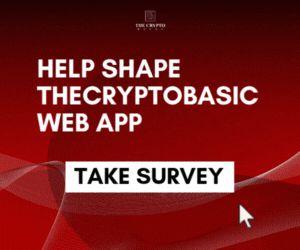Twitter CEO Payment firm Square decentralized exchange TBD, a project led by Mike Brock, has announced its whitepaper.
We made a white paper. https://t.co/ffvYGjQQ7T
— TBD (@TBD54566975) November 19, 2021
TBD is different from a traditional decentralized exchange. Brock explained the functioning of TBD.
“We believe Bitcoin will be the native currency of the internet. While there are many projects to help make the internet more decentralized, our focus is solely on a sound global monetary system for all. But including all requires a few pieces we think are missing.
Getting bitcoin today typically involves exchanging fiat at a centralized and custodial service like CashApp Coinbase. These on- and off-ramps to Bitcoin have a number of issues and aren’t distributed evenly around the world.
This is the problem we’re going to solve: make it easy to fund a non-custodial wallet anywhere in the world through a platform to build on- and off-ramps into Bitcoin. You can think about this as a decentralized exchange for fiat.
As we said, this platform will be entirely developed in the public, open-source, open protocol, and any wallet will be able to use. No foundation or governance model that TBD controls. Permissionless or bust.”
TBD White Paper Writes:
“The tbDEX protocol approaches trust differently than other decentralized exchange protocols in the sense that it does not utilize a trustless model, such as atomic swaps. At first blush, this is not optimal, especially when considering the end goal of providing access to a trustless asset like bitcoin. However, the reality is that no interface with the fiat monetary system can be trustless; the endpoints on fiat rails will always be subject to regulation, and there will exist the potential for bad behavior on the part of counterparties. This means that any exchange of value must be fundamentally based on other means of governing trust — particularly reputation.
The tbDEX protocol borrows heavily, if not completely, from well-established models of
decentralizing trust, such as the public key infrastructure (PKI) that is used for securing the
internet today.
Building on top of Decentralized Identifiers (DID), this specification lays out a trust model in which trust is governed through disparate verifiers of trust; this is ultimately in the control of individuals, implementers of cryptocurrency wallets, and/or delegates of trust established by either group.
The protocol itself does not rely on a federation to control permission or access to the network. There is no governance token. In its most abstract form, it is an extensible messaging protocol with the ability to form distributed trust relationships as a core design facet. The protocol itself has no opinion on what an optimal trust relationship between an individual wallet and a participating financial institution (PFI) should look like.
The nature of this trust relationship will never be universal: different jurisdictions are subject to different laws and regulations; and different individuals and institutions will have varying levels of risk tolerance, influenced by price and other incentives. It would violate the principle of trying to achieve the maximum amount of decentralization if the negotiation of trust was dictated at the protocol layer, as that would necessarily involve some form of permission federation.”
DisClamier: This content is informational and should not be considered financial advice. The views expressed in this article may include the author's personal opinions and do not reflect The Crypto Basic opinion. Readers are encouraged to do thorough research before making any investment decisions. The Crypto Basic is not responsible for any financial losses.



